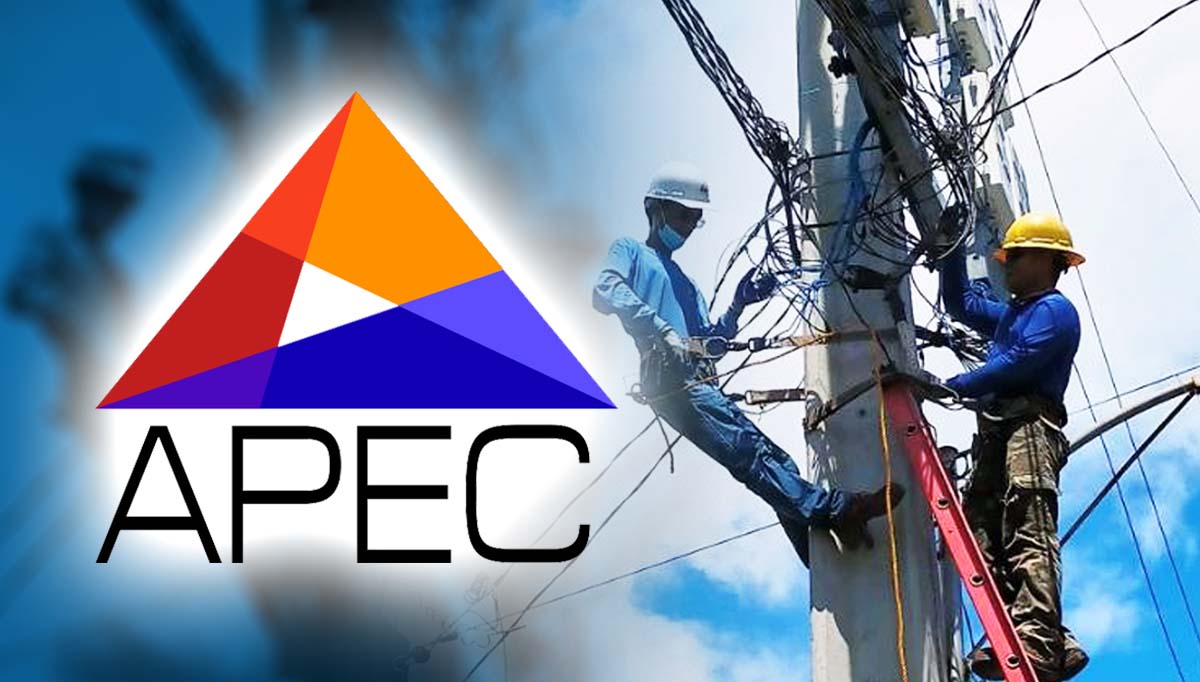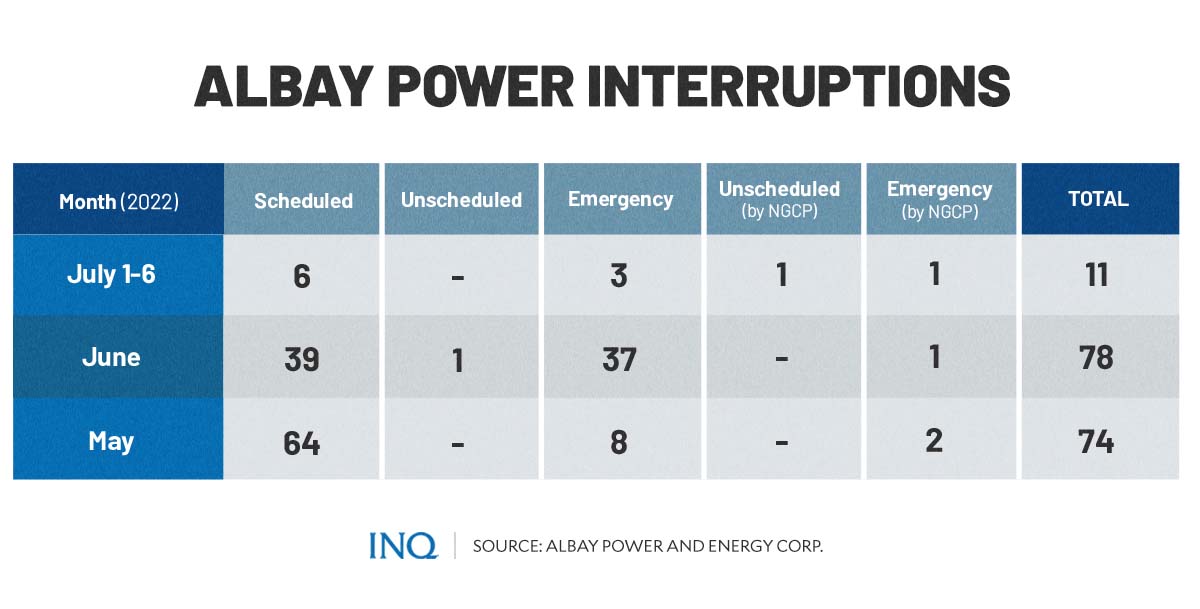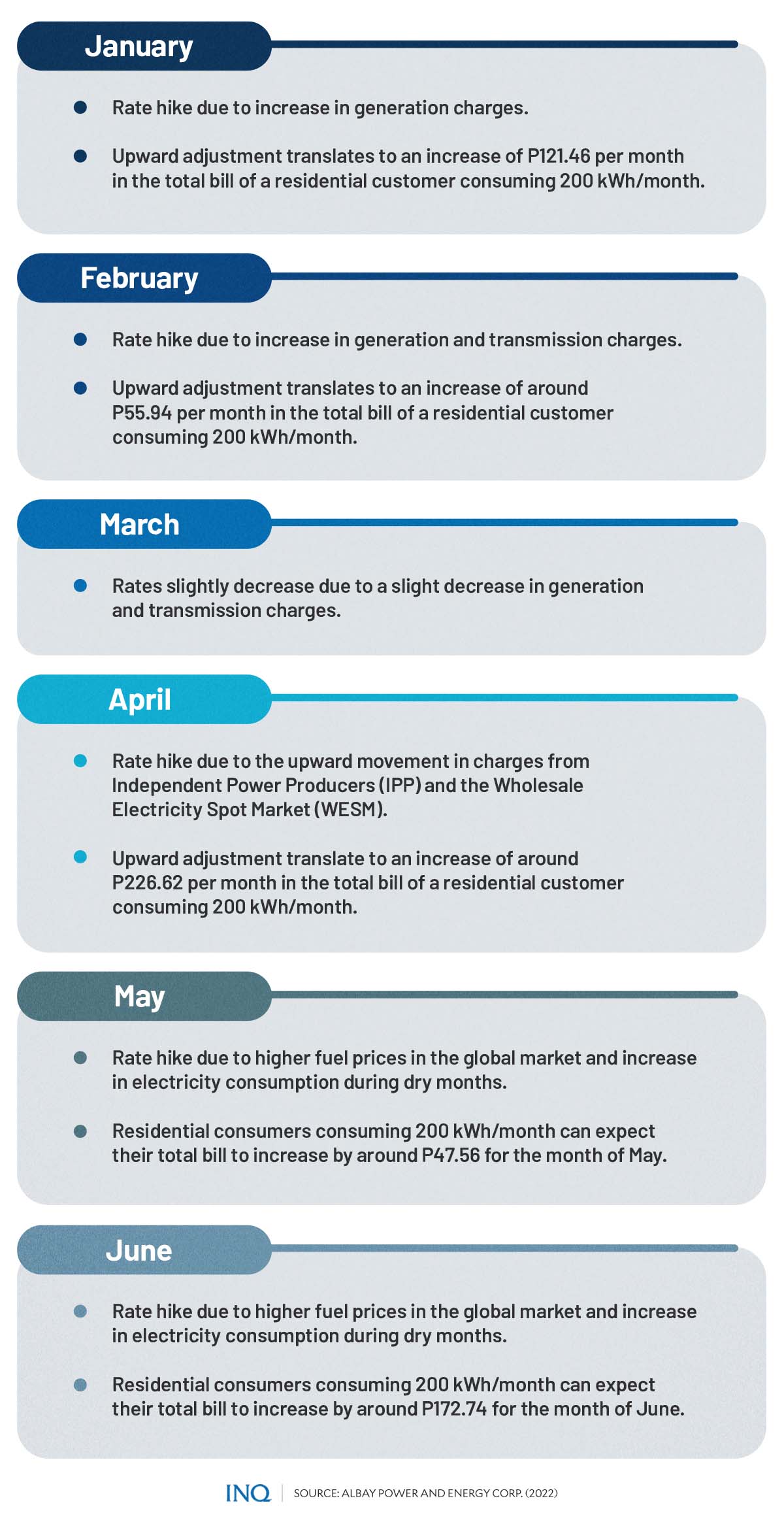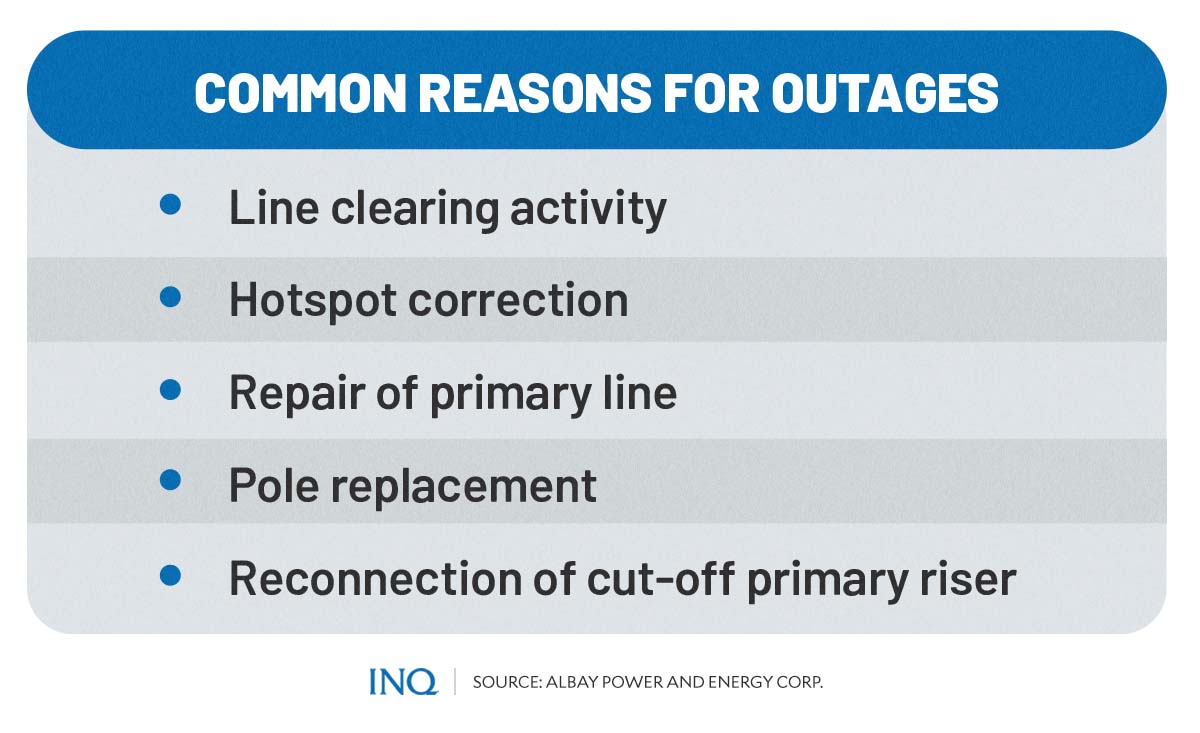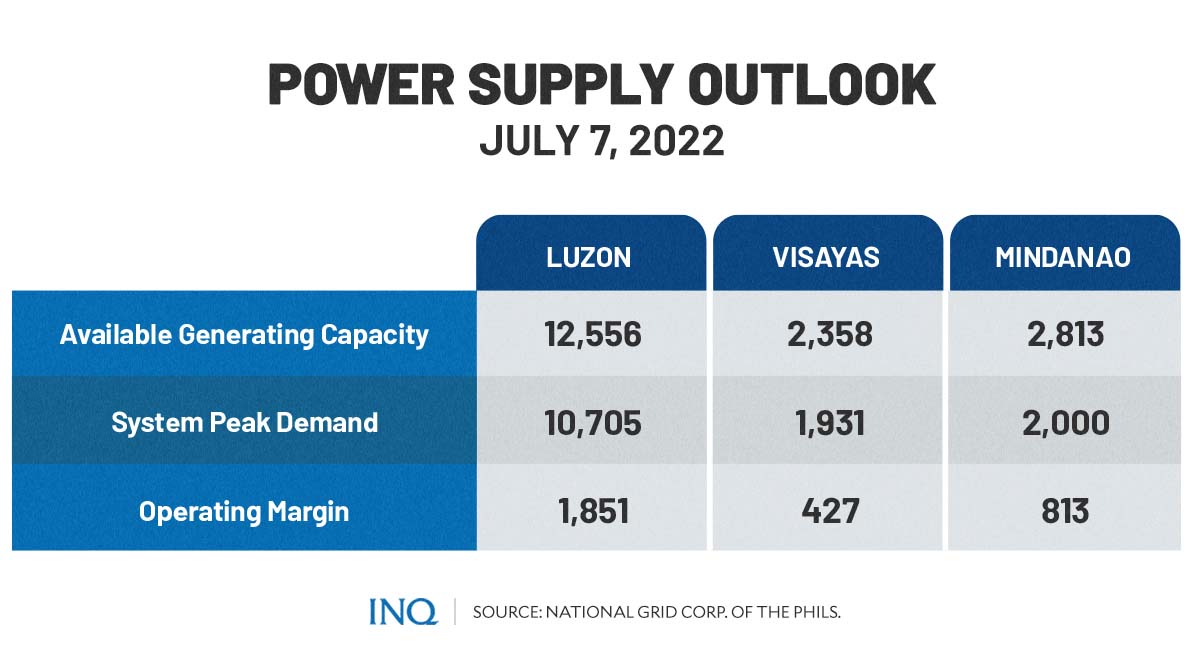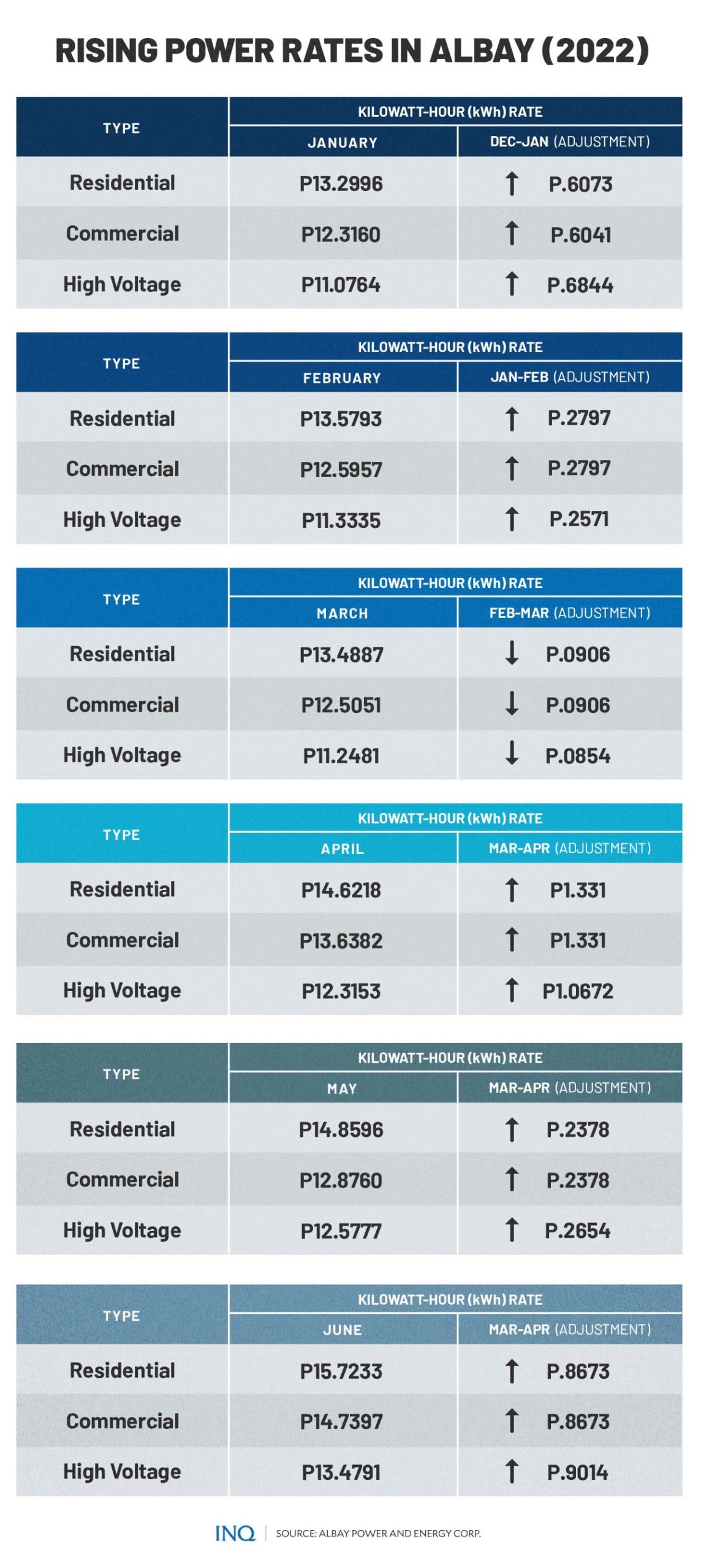Albay power woes: Takeover seen as solution
MANILA, Philippines—Amid the piling power woes and years of outcry for better energy service in Albay, authorities see a possible answer through the takeover of management between an energy company in the province and its concessionaire.
Among the provinces in the Bicol Region, which has been hit several times by strong typhoons, the province of Albay has suffered from longstanding power issues such as outages—which happened almost regularly in the past months.
Albay Power and Energy Corp. (APEC), a private power distributor and subsidiary of San Miguel Corporation Global Power Holdings, has at least 205,000 power subscribers spread in 15 towns and three cities of Albay.
According to the APEC website, it started operations in February 2014 in Albay. It said its focus is on three things—improve collection efficiency, reduce system loss and improve corporate branding and image.
But in recent months, APEC has announced over 100 advisories on power interruptions affecting areas that are covered by substations across the province of Albay. Some of these power interruptions were scheduled, while some were not.
Article continues after this advertisementAside from the announced power interruptions, there were also cases of busted and overloaded transformers, which have also led to temporary power interruptions in the vicinity of the affected transformers.
Article continues after this advertisementIn a bid to find a solution to address Albay residents’ power woes, Gov. Noel Rosal has recently met with representatives of Albay Electric Cooperative (ALECO) and officials from the National Electrification Administration (NEA).
To be decided
“One of the probable answers to the dilemma discussed is the possible take-over of a new board and taking away the management from the Albay Power and Energy Corporation (APEC), the latter being flooded daily with consumer complaints due to its alleged poor services,” the governor’s official Facebook page stated.
On March 26, 1991, ALECO—as the franchise holder—was officially registered with the NEA as “a non-stock, non-profit and non-political service-oriented entity pursuant to Presidential Decree No. 269.”
“ALECO was granted the sole franchise to operate light and power service for a period of 50 years from and after the issuance of the franchise in the Province of Albay,” APEC explained.
In 2013, APEC was incorporated and registered with the Securities and Exchange Commission (SEC), as a result of the Concession Agreement between ALECO and SMC Global Power Holdings, Corp (SMCGPHC).
The following year—2014—APEC officially took over the management of the debt-ridden ALECO.
Under the private sector participation (PSP) scheme between ALECO and SMCGPHC, private firm APEC will manage and operate ALECO for a period of 25 years.
READ: Albay co-op officials OK bid of SMC subsidiary
However, it was noted that the public would still have to wait until next month to find out the final decision regarding what could help solve or lessen the power issues in the province.
“[I]t was emphasized in the meeting that the matter and the final decision will be decided in August when the governor calls for an ALECO General Membership Assembly (AGMA) of all interested member-consumers to discuss thoroughly the final decision regarding the power supply in Albay.”
“Governor Rosal expressed high hopes that APEC would cooperate and comply with the general assembly’s final decision in case of a possible change of management. Especially since reports have shown that APEC has already incurred debts amounting to almost five billion pesos,” the Albay Public Information Office (PIO) wrote.
“It can be recalled that the reason for APEC’s takeover years ago was to restructure ALECO’s two billion pesos debt.”
Pat Gutierrez, APEC spokesperson, said last May that the firm owes NPC-SPUG P32 million. This is on top of the P4.2 billion that the firm owed San Miguel Energy Corp. (SMEC), where APEC gets its power supply, aside from the wholesale electricity spot market (WESM).
Gutierrez also admitted that APEC’s operation had been saddled by unpaid bills from 53,000 consumers, system losses caused by rampant pilferage, and antiquated transmission lines and stations.
According to her, the firm was losing at least P142 million each month due to a 21 percent system loss and nonpayment of bills. The firm’s collection efficiency was also pegged at only 74 percent.
READ: Months of darkness in Albay: Power outages, rising rates
Geothermal plants in 2023
Aboitiz Power Corp., meanwhile, has recently announced that it is ramping up its renewable energy investment with the construction of a 17-megawatt binary geothermal power plant in Albay.
“The planned facility will be built with an entirely new binary plant system, pipes and transmission line” and is set for completion in 2023.
“This project is meant to recycle our byproduct and turn it into productive energy in the form of electricity, through the addition of a binary plant,” said Jeffrey Estrella, AP Renewables Inc. (APRI) president and COO.
“We are always keen on investing in improvements and technical innovations that extend the useful life and improve the output of our renewable energy assets,” Estrella added.
